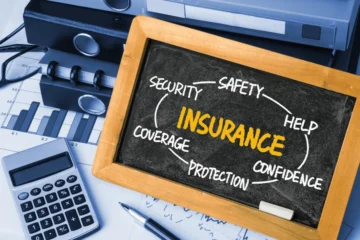Top Mortgage Options for Self-Employed Individuals: A Professional Guide

Searching for the right mortgage as a self-employed person can feel like you’re trying to find your way through a maze, blindfolded. You know options exist, but hitting walls seems inevitable. Well, imagine someone just handed you a map.
Embarking on the journey of entrepreneurship or freelancing requires precision and clear direction—that’s why this guide is carefully crafted to arm you with the tools and expertise you need to set up a thriving real estate business.
Cutting through the red tape of loan approvals is just the beginning. Here’s how to handpick the best lenders for your situation, crystallize a can’t-miss strategy, and convert your home loan vision into a tangible reality. Self-employed real estate investors are our niche in the mortgage industry.
Thinking of buying a home but not sure how your self-employed status will impact your mortgage prospects? Don’t stress—we’ve got the answers you’re looking for.
Navigating Mortgage Approvals for the Self-Employed
Getting approved for a mortgage when you’re self-employed feels like running through an obstacle course, right? The trick here involves understanding your options. Ever heard of no-doc mortgages?
They’re specifically designed for individuals like us, who find it tough to show a steady income on paper. With this type of loan, the lender doesn’t make you submit loads of income statements. Instead, they take a look at your credit score and assets.
Plus, they check out where we’ve worked in the past. Have good credit and some savings or investments? You’re off to a great start.
Now, don’t rush in without knowing this: these loans often require a bigger down payment. Think 20% or even more sometimes. To balance out not checking income traditionally.
And yeah, interest rates can be higher with these loans because lenders see them as risky bets compared to regular kinds. But here’s the thing. It’s not impossible to secure that home dream of yours if you play by these rules wisely, considering various top self-employed mortgage options.
Just know that what counts most is showing strong financial health and keeping eyes wide open about the costs involved.
Smart Strategies to Secure Your Home Loan
When trying to secure a home loan while self-employed, you face unique challenges. Your income might swing wildly from month to month. Lenders love stability, and showing them their finances are solid can be tough when one month is a feast and the next famine.
Start by gathering all your financial documents. Think tax returns, bank statements, profit and loss statements. Anything that proves what you make.
And yes, those deductions on your taxes? They might lower how much lenders think you earn. Keeping a good credit score matters, too.
It’s not just about paying things on time; it’s also keeping debt low compared to income. A bigger down payment could sway decisions in your favor as well.
It shows commitment and reduces the lender’s risk. Remember, different loans have different rules. Conventional ones might need only 3% down, but watch out for private mortgage insurance if under 20%.
Bank statement loans could be an option if traditional paths don’t work due to tax returns showing less income. Securing a mortgage demands more from freelancers or self-employed individuals but isn’t impossible with some preparation.
Are you self-employed and thinking mortgage options might be limited? Blake Mortgage offers solutions like bank statement loans that could really work in your favor.
Instead of traditional income proof, your bank statements can paint a picture of your financial health. This way, securing a mortgage becomes more accessible, even without those W-2 forms big banks often ask for. Choosing the right path involves knowing all available routes.
So don’t let being self-employed hold you back from owning the perfect home!


















